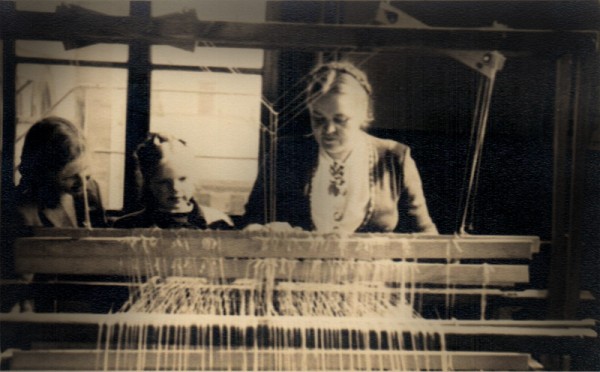Weaver Elga Kivicka
Elga Kivicka was an experienced and well-known weaver in pre-war Latvia. Kivicka set up and directed the weaving workshop at the Rīga Artisan Craft School (Director A. Dzērvītis) and was the author of a number of books. In 1938, Kivicka’s joint work with Ā. Karnups was published – a series of exercise books “Novadu tērpi” [County Costumes], in which Latvian folk costumes were described by county, using examples from the collection of the State History Museum (now – Latvian National Museum of History) for the components of the costume. This series was very popular and was used frequently by makers of folk costumes in Latvia, as well as in exile.
Having ended up in the Fishbach refugee camp in Germany at the end of the Second World War, Kivicka organized other Latvian refugees to build her a loom, and later continued to teach weaving in a basement workshop.
Elga Kivicka did not have a family, and this is why she received the opportunity to leave the refugee camp relatively early after the war. In 1947, Kivicka moved to England, where she worked as a domestic in a hospital. In her free time, Kivicka continued her professional hobby, teaching weavers in a craft group.
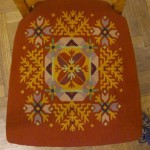
Furniture designed for the Riga Castle Ambassador accreditation hall by Ansis Cīrulis, 1923
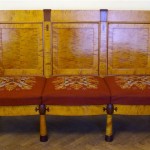
Fabric woven by women from the Latvian Women's League, including Elga Kivicka, 1926-1929 .
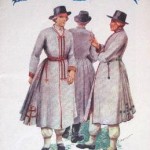
Publication by A. Karnups and E. Kivicka, "Novadu tērpi", 1939 .

